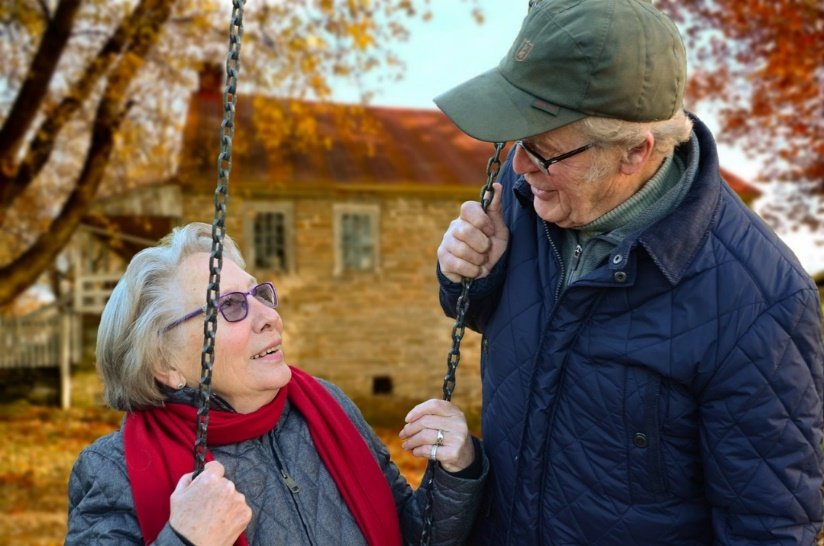The significance of maintaining excellent health becomes more evident as one crosses the age of 50. Even if seniors mature gracefully, their bodies might suffer as they age.
Moments of joy, love, and treasured memories fill the pages of life. However, they also have to deal with the burden of increasing health issues as they age. The National Council on Ageing (NCOA) estimates that approximately 80% of seniors have two or more chronic conditions, and nearly 95% have at least one.
This astounding figure emphasizes how crucial proactive health management is for older persons.
Therefore, to help seniors embrace their path with vigor, resiliency, and delight as we dig into senior health, let’s explore five fundamental tips.
Consult a Qualified Healthcare Professional
Building a trusting relationship with a skilled healthcare professional is crucial for seniors. Regular medical examinations and consultations proactively address health issues, ensuring that possible problems are recognized and handled early on.
Particularly for illnesses that are frequently identified in elderly people. A good example is the occurrence of mesothelioma, a terminal form of cancer with a long incubation period that primarily affects older people who worked in construction or served in the forces.
Many decades after the initial contact with asbestos, this disease, frequently connected to asbestos exposure, develops symptoms that become evident after the 60s.
Records from the CDC show mesothelioma prevalence peaks in the 75 to 84 age range, with a worrying incidence of 6.8 new cases per 100,000 people. This specific statistic emphasizes how crucial it is for seniors to have close relationships with a mesothelioma doctor to have a complete grasp of potential health issues in their later years.
Regular checkups are crucial for early problem detection and intervention as the possibility of effective outcomes is considerably increased by taking a proactive approach.
Having a healthy, balanced diet
Our nutritional requirements change as we move through the ages; that much is certain. Seniors must modify their diets to ensure their bodies receive the best support necessary for optimal performance.
The abundance of colorful fruits and vegetables Mother Nature has bestowed upon us is comparable to a treasure trove packed with necessary vitamins, minerals, antioxidants, and dietary fiber. For instance, the common berry has a potent antioxidant powerhouse.
Leafy greens like spinach, kale, and Swiss chard also provide essential minerals, including vitamin K, which is good for bones, ensuring a strong foundation for skeletal health.
Therefore, let’s not forget that statistics and nutritional knowledge guide us as we age. They show us the road to making decisions that respect not only our bodies but also the intricate tales painted on the canvas of our lives.
While nutrient-dense foods are the main focus, portion control is also crucial. As metabolism slows down when we’re older, eating in portions helps prevent overeating and supports a healthy weight.
Stay physically active
There’s a whole world of benefits waiting for those who make regular physical activity a part of their lives, and these perks can profoundly impact their overall health and the quality of their day-to-day existence.
When we start thinking about evading the clutches of chronic diseases, which often come knocking with age, an active lifestyle becomes a secret weapon. For people who prioritize exercise, the odds of being pestered by illnesses such as heart disease, stroke, type 2 diabetes, or even certain types of cancer take a remarkable nosedive.
This superhero-like quality of exercise extends a welcoming hand to heart health, not just by guarding against risk factors but by actively supporting the cause of cardiovascular well-being.
Additionally, exercise improves balance and muscle strength, lowering the chance of injury from falls. Seniors who engage in regular physical activity are more likely to have stronger cognitive abilities, a higher quality of life, and a lower risk of dying young.
Not only that, but physical activity is also essential for maintaining independence and mobility as people age. Exercises adapted to mobility levels help seniors preserve their freedom in carrying out daily tasks without the aid of others.
Getting Enough Sleep is essential.
Sleep no longer remains a luxury but becomes a necessity when you age. Our bodies perform critical processes, including tissue healing, memory consolidation, and hormone regulation when we sleep. Like everyone else, seniors depend on the smooth operation of these procedures.
Our bodies carry out a process of repair and restoration when we sleep. Our immune system strengthens, muscles expand, and cells repair themselves.
Seniors should pay special attention to this since it helps maintain their bodies’ resilience. Additionally, sleep has a significant impact on how the brain works. It aids in problem-solving, memory consolidation, and attention retention. A good night’s sleep helps maintain cognitive health in seniors and keeps their thoughts active.
We suggest a few simple processes that are easy to incorporate into daily routines and might help ensure that elders get enough restful sleep. Make a comfortable sleeping area! Ensure that the bedroom is peaceful and relaxed.
Purchase a cozy mattress and pillows. Generally, cooler temperatures and darkness help people sleep better, so think of setting your room lights and source of ventilation like that. Also, before going to bed, creating a regular schedule might tell your body it’s time to unwind.
Place a high priority on mental health.
Seniors can weave a tapestry of resilience and emotional well-being by participating in activities that enhance cognitive vibrancy and develop connections.
As they age, they may experience changes in their daily activities, health, and social dynamics. Making mental health a priority enables them to face these changes gracefully and optimistically. Cognitive function is kept sharp by partaking in mentally demanding activities like reading, figuring out puzzles, or learning new skills.
It encourages mental agility and inventiveness like an exercise for the brain would.
Additionally, isolation and loneliness can harm one’s well-being. In light of this, we advise seniors to talk to their friends, family, and classmates. Relationships that are good for the heart and mind can be fostered by participating in social organizations, attending local events, or even volunteering.
Conclusion
Seniors occupy a significant part of our lives and deserve care and consideration. There are various crucial factors to consider while placing their well-being first.
These foundational principles propel seniors towards a symphony of health, fulfillment, and contentment as the chapters of life unfold.
















